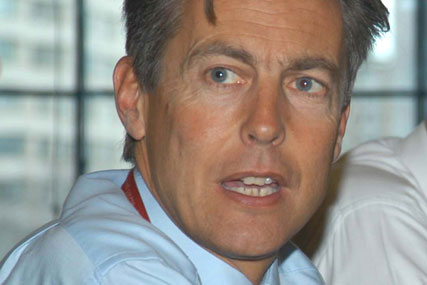
The proposed change to the definition of "an independent production company" is aimed at increasing the number of companies that qualify for quotas requiring the BBC, C4, ITV and Five to buy original TV content from them.
The BBC, Channel 3 companies, Channel 4, Five and S4C have to ensure at least 25% of programming is made by independent production companies.
The Government claims today's announcement follows plans set out in the Digital Britain report in June.
Culture secretary Ben Bradshaw said: "Television production spread across the nations and regions of the UK is good for viewers, good for regional economies and good for cultural diversity.
"One of the key ambitions of our Digital Britain report is to ensure high-quality public service content from multiple providers on multiple platforms."
But today's proposal has been dubbed "nothing more than a political gesture" by Pact, the trade association for independent television companies.
John McVay, chief executive of Pact, said the idea the reclassification would encourage more independent production and support the industry in the long term was "totally misguided".
He believes it will only help independent companies with the largest production arms already in place, such as the Scottish ITV franchise STV which, according to McVay, has been lobbying for "special treatment" for five years.
As head of Pact, which represents 66 production companies in Scotland, McVay called today's proposal "a slap in the face for the struggling smaller Scottish producers".
He also refuted suggestions that the idea of reclassification had been comprehensively consulted on for Digital Britain.
He added: "We [Pact] support an open, competitive market, but firmly believe the gerrymandering of definitions is not the way to build sustainable production in Scotland."
Bradshaw said he recognised there are "differing views on this proposal" and will hold a 12-week consultation that closes on 2 February.



.jpg)


.jpg)